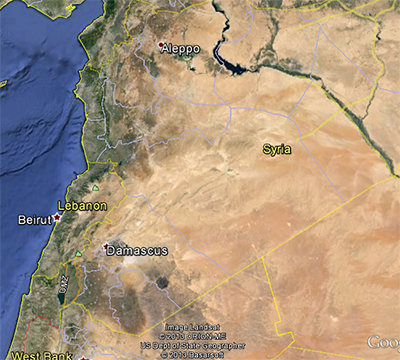Op-Ed: Between Two Red Lines
BY RENÉ PROVOST, OTTAWA CITIZEN, AUGUST 30, 2013
 The United States and French governments are actively considering military options to intervene in Syria, and there is a need for Canada to play a significant role. The need for Canadian input is not on the battlefield but rather in leading the process whereby the international community unites to decide what type of action should be taken.
The United States and French governments are actively considering military options to intervene in Syria, and there is a need for Canada to play a significant role. The need for Canadian input is not on the battlefield but rather in leading the process whereby the international community unites to decide what type of action should be taken.
There is no denying that the situation in Syria has been growing progressively worse. It is a complex conflict, and there are credible and corroborated reports that all sides in that civil war have committed serious crimes. That said, the use of chemical weapons by the Syrian government presents an enormous escalation that calls for the international community to react, not because of the number of casualties but because of the nature of the weapon. In the wake of their intensive use during the First World War, the use of chemical weapons was not only made illegal but effectively the subject of a taboo. Although stockpiled in the Second World War, they were not employed in Europe despite the barbarity of that conflict. Their use by Saddam Hussein in Iraq was universally reviled as a crime, of which he was eventually convicted. A failure by the international community to react to chemical warfare in Syria may break not just the law but the taboo, and signal to other belligerents in other wars that they too can turn to such uncontrollable and indiscriminate weapons. The world must therefore respond to restore President Barack Obama’s “red line”, but how?
The actions being considered by the U.S. and French governments are reported to centre on a strike using missiles or bombers. There are various problems associated with such an option, including skepticism as to the likely effectiveness of such a strike in deterring the Syrian government from further use of chemical weapons. Another very significant headache for advisers to the U.S. and UK governments is that such a strike would amount to the international use of force, something explicitly prohibited by the United Nations Charter. According to the Charter, there are only two exceptions under which armed force may be used: self-defence and authorization by the Security Council under Chapter VII of the Charter. This is not a case of self-defence. The second exception, a resolution of the UN Security Council, is presented as unlikely to succeed because it would require endorsement by Russia, which has steadfastedly refused to recognize that the government is clearly to blame for the chemical attack and, more generally, that the rebels’ cause is just and should be supported. China is likewise generally unfavourable to any type of intervention.
President Obama mentioned that the U.S. is actively looking at Kosovo as a precedent. In a legal opinion published Thursday, the UK stated that if Security Council approval is blocked by veto, then unilateral intervention is deemed permissible in extreme humanitarian crises.
The broad consensus among international lawyers is that Kosovo is not a precedent for this proposition.
In Kosovo, Russia never vetoed a resolution that would have authorized intervention (they merely hinted that they might), no NATO government justified its intervention in Kosovo on a general legal right to humanitarian intervention (they were extremely fuzzy, when not simply silent, as to its legal basis), and the Responsibility to Protect later adopted by the UN explicitly removed any suggestion of unilateral intervention (developing countries were forcefully against the idea). Kosovo is a precedent that stands for the failure by NATO to engage with the international community, however slow and painful that may be, despite a claim to be acting in the name of humanity as a whole.
This is where Canada can intervene in a manner that is much more significant than contributing a few aircraft to a strike against Damascus. Exactly as in Kosovo, there is a pressing humanitarian need to intervene and the threat of a Russian veto. Canada should press for a continued engagement within UN structures, even if there is a real risk of a veto. A veto would trigger enormous political cost for Russia, seen as standing in the way to intervene to stop atrocity.
Russia may be willing to negotiate a middle-of-the-road solution that could be only marginally less effective than an armed strike. If there was a veto, it might trigger a backlash and open the door to a resolution by the UN General Assembly, in which every state has a vote and no veto. Legally and morally speaking, such a resolution would be significant.
The U.S., U.K. and France are permanent, veto-wielding members of the Security Council, and naturally see the Council as the preferred forum. There is a need for a state like Canada to show leadership and act as mediator between the Security members and the international community as a whole to achieve consensus on a reaction that will deter use of chemical weapons but maintain that other important red line, the strict limitation of the use of armed force in international relations.
